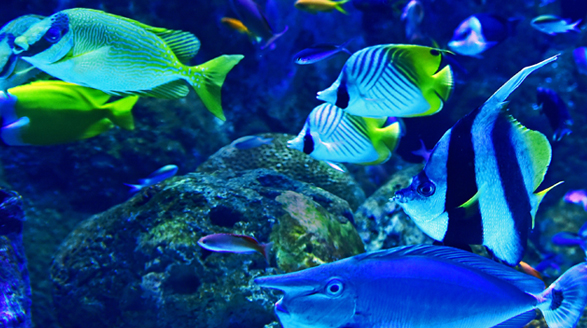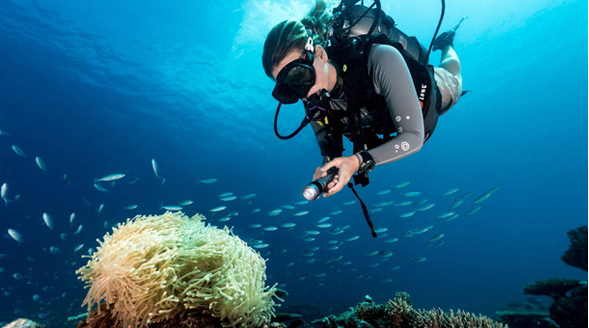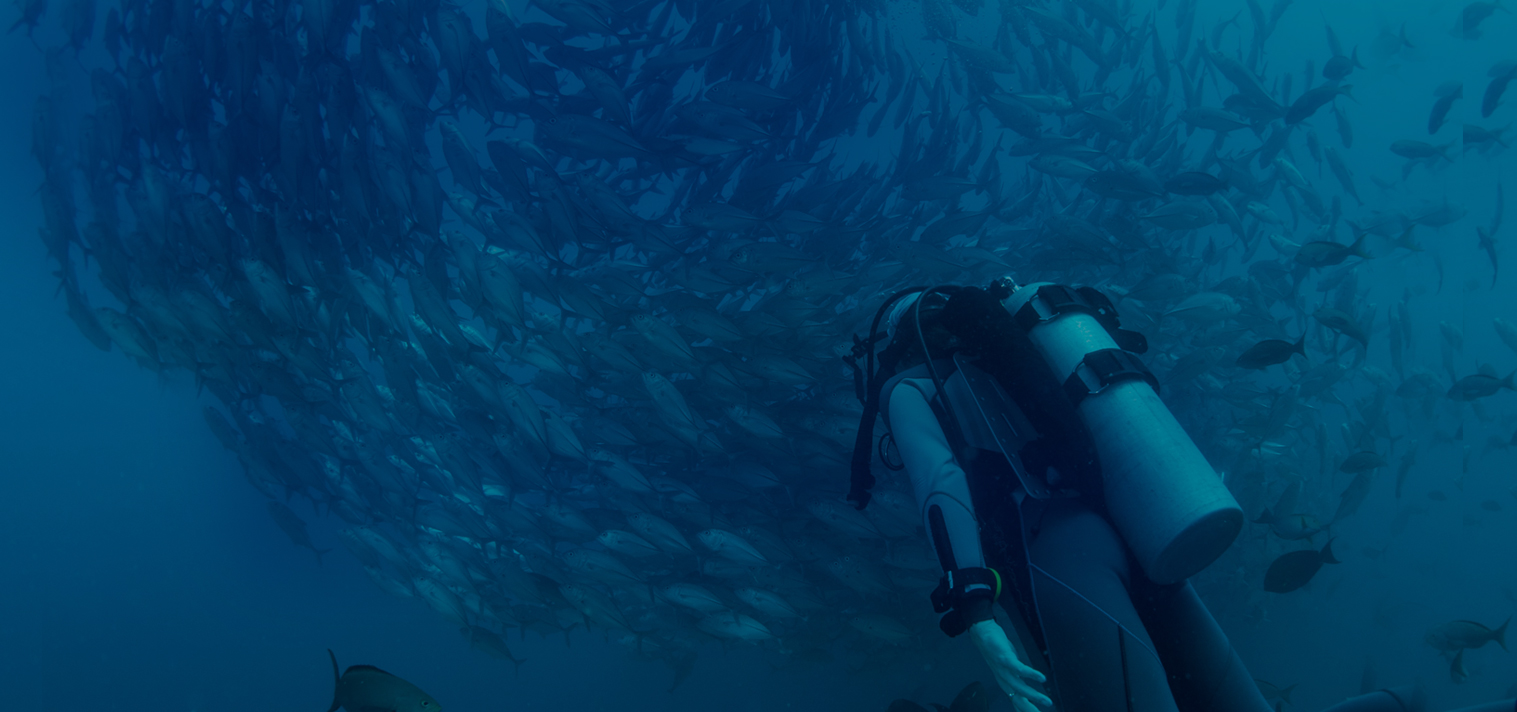One Planet, One Ocean
The Intergovernmental Oceanographic Commission of UNESCO (IOC)enables its 150 Member States to coordinate marine scientific research programmes, ocean services and related activities such as capacity development. At the national level the IOC works with the relevant marine, ocean and coastal management agencies to ensure that policymakers have access to the best possible ocean science and services.
The main purpose of UNESCO-IOC Subcommission for the Caribbean and Adjacent Regions (IOCARIBE) is to promote international cooperation and coordinate research programmes, services and capacity development in the Tropical Americas and the Caribbean (TAC) Region, in order to learn more about the nature and resources of the ocean and coastal areas and to apply this knowledge for the improvement of management, sustainable development and the decision-making process of its Member States. The Sub-Commission is responsible for the promotion, development and coordination of the IOC´s global scientific & research programmes and ocean services in the TAC Region, through the concerted action of IOCARIBE Member States.
Our History

Cooperative marine science activities of IOC in the Caribbean and adjacent regions have existed for more than fifty years.
Over this period three distinct stages have marked the evolution of marine Sciences in the region. CICAR - 1968: The first regional effort in marine sciences in the Caribbean was the Cooperative Investigations of the Caribbean and Adjacent Regions (CICAR) coordinated by IOC and modeled on the Indian Ocean International Expedition. Its aim was the understanding of the oceans and related processes in the Greater Caribbean region. To achieve its research goals, CICAR had first to concentrate on developing the capabilities of the participating countries to carry out marine scientific research. This became its major activity and the most significant impact of CICAR in the region.
IOCARIBE Association, 1975: The Member States recognized the benefits of CICAR and expressed their interest in creating a successor organization. The "Association of IOC for the Caribbean and Adjacent Regions", using the acronym "IOCARIBE" for the first time, was approved by the Ninth Assembly of IOC in November 1975 for an experimental period of six years. After the experimental phase, and at the request of Member States, the output of the Association was evaluated and presented to the IOC Assembly in 1982.
Despite some shortcomings, the development of national capabilities reached during CICAR and later by the IOCARIBE Association was described as "impressive and satisfactory". The Association's most significant achievement was to provide a mechanism for regular contact and an international regional forum for dialogue and exchange of experiences and ideas among Member States.
IOCARIBE Sub-Commission, 1982: The Sub-Commission for the Caribbean and Adjacent Regions, of the Intergovernmental Oceanographic Commission (IOC) of UNESCO, was created in November 1982. It is the first in its kind and its purpose is to carry out the IOC global programmes on a regional basis for the Greater Caribbean. It replaced the former IOCARIBE Association and its predecessor CICAR.
Our Mission

IOCARIBE is a regional subsidiary body of the Intergovernmental Oceanographic Commission (IOC).
As a Regional Sub-Commission of IOC of UNESCO, IOCARIBE is responsible for the science base, the gathering of knowledge, the implementation of scientifically based information, the quality control, the voice of scientific credibility, and for ensuring that knowledge and data can be shared and used by all. In establishing its programmes, IOCARIBE takes into account the specific interests and needs of the Member States in the Region.
IOCARIBE can be envisaged as an international networking system created by the Governments of Member States, for the co-ordination and promotion of ocean and coastal sciences and associated operational services in the Region.
Its major objectives are to:
-
Reinforce and broaden scientific co-operation, regionally and internationally through networking and institutional arrangements with organizations operating within and without the region, for example, UN bodies, IGOs, NGOs, the scientific community;
-
Provide regional input to global ocean sciences and observation programmes;
-
Promote and facilitate implementation of IOC global science programmes and ocean services at the regional level;
-
Foster the generation of knowledge, sharing of information, expertise and experience on the Tropical Americas and the Caribbean and its coastlines; and to
-
Assist Member States to develop their capacity to formulate national policies and plans to meet their needs in marine science and technology.
IOCARIBE is not a funding agency. The Sub-Commission lends its credibility, and validates and endorses fund-raising efforts. Moreover, it assists in the avoidance of duplication, waste and inefficient use of funds and resources emanating from different sources into the region for scientific projects and initiatives. Most of IOCARIBE's support for its programmes comes from external sources or is provided by Member States in the region.
Donor support is also sought through the intergovernmental mechanism and through IOC. Liaison is maintained with international and regional organizations (UN, IGOs, NGOs) and programmes co-operating with the Sub-Commission at the regional level for example, UNESCO/CSI, CARICOMP, UNDP, UNEP/CEP, IMO, CARICOM, OECS, ACS, IAI, CMO, IRF, ECLAC, OSPESCA, CRFM, CIHM. T
1982
IOCARIBE established
32
IOCARIBE Member States
15
Territories
23%
The area of the seabed that has been mapped
Task
The Regional Sub-Commission operates within the framework of the general policy of the IOC and is an intergovernmental subsidiary body responsible for the promotion, development, and coordination of the Commission's marine scientific research and technology development programmes, the ocean services, and related activities including Capacity Development in the Tropical Americas and the Caribbean region, through the concerted action of IOCARIBE Member States.
The Sub-Commission's programmes are not a mere reflection of the IOC Global Programmes, but respond to the regional priorities, needs and commitments towards the achievement of regional sustainable development. The work of the Sub-Commission is driven from the Region and carried out by IOCARIBE Member States. The Sub-Commission's work must provide them with appropriate scientific inputs and with necessary elements to formulate their own ocean and marine policy instruments.




